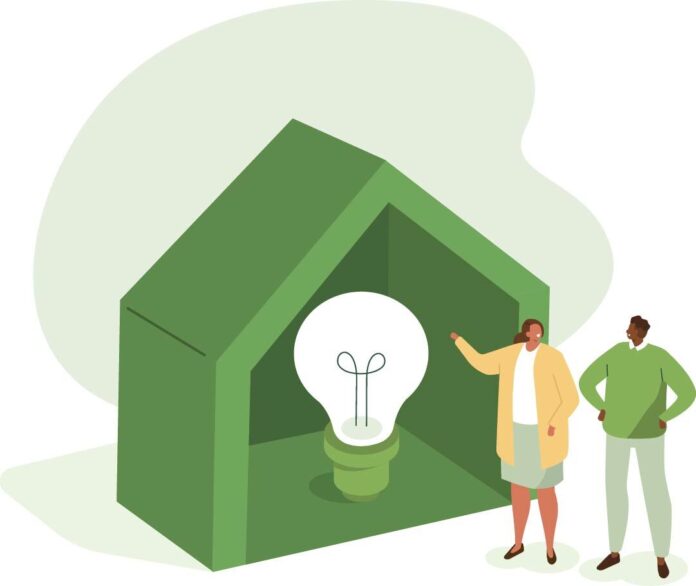Sustainable Utilities Managed
By Rachael Reid
Every community has its charm — the one thing that sets it apart from the rest.
The manufactured housing industry plays the vital role of providing affordable housing options to people across the United States. With economic pressures at an all-time high, the need for growth and evolution in sustainable business practices becomes even more essential amongst those providing and needing affordable housing.
By design, communities must be built with key considerations taken into account. And any goiod community’s success hinges on two major environmental, social, and governance (ESG) factors: risk mitigation and resilience.
Conservice — a utilities management firm that supports the manufactured housing industry — has built a community of owners and operators (as well as their residents/tenants) along with partnerships with local utility providers and government entities to manage utilities for their properties. From Bill-to-Boardroom™, it’s important to use the utility data you already track each month to make better decisions for your communities. Conservice has been doing just that for over 20 years and has learned a thing or two about building better communities as a result.
Making a sustainable community is good for everyone. But in case you need another reason, we’re giving you five ESG considerations that significantly impact the manufactured housing industry in building stronger, more resilient futures for your communities.
- Energy Efficiencies Lower Costs and Risks
Manufactured homes are inherently more sustainable due to carefully engineered designs with less waste in mind. We know that by adopting energy-efficient building practices and materials, our homes can reduce energy consumption, lower overall utility costs, and minimize carbon footprints.
Research also shows that environmental responsibility is important to 81 percent of consumers – and that Gen Zers (people born after 1997) are the generation that places the highest value on sustainability. As more of these younger people enter the real estate and rental market, sustainable features and amenities are becoming vital selling points. But it’s not just younger potential residents; the data indicates that 61 percent of all renters are willing to pay a premium for sustainability.
Manufactured housing companies that prioritize environmental sustainability also reduce operational risks by lowering energy costs and ensuring compliance with increasingly stringent environmental regulations.
We call that a win-win.
Thanks to emerging ENERGY STAR Benchmarking, Building Performance Standards, and other local/state regulations, monitoring and tracking those requirements for all of your properties is slowly becoming a requirement, so we handle all of that on behalf of our customers.
- Investing in People and Community Increases Resiliency
Building a community is no small task. Building a better community involves people. Better communities ensure well-maintained and safe communities, fair and transparent pricing, and consistent opportunities for residents to participate in making the community a better place.
By investing in the people of a community with amenities such as playgrounds, green spaces, community gardens, and community centers, a shared sense of belonging is created that improves the overall quality of life for a stronger, more resilient people base.
- Governance and Financial Reporting Drive Transparency and Risk Management
Managing governance practices, including relationships in what may seem like unlikely places, drives transparency and risk mitigation. Regulatory requirements and ethical sourcing of materials better positions the manufactured housing market to address disruptions in supply chains and helps communities adapt to changing markets.
With the right governance structures in place, companies are better prepared for, well, any crises that comes their way. Whether economical or natural, companies can weather the storm by sharing their goals and involving their communities in the goal of making and keeping processes.
- Community Planning and Disaster Preparedness IS Resiliency Planning
Better communities care about the sustainability and longevity of their investments. Companies that wish to build better communities prioritize resilient community planning and disaster preparedness by designing communities that are less vulnerable to natural disasters, such as hurricanes or flooding, and implementing emergency response plans to protect residents in times of crisis.
Investing in resilient infrastructure, such as elevated foundations, stormwater management systems, and backup power sources can help manufactured home communities withstand adverse events and ensure the safety and well-being of residents. Proactive disaster preparedness not only mitigates risks but also demonstrates a commitment to the welfare of the community.
- Find Partners in Seemingly Unlikely Places
Better communities are built by involving everyone. It’s been said that when you take care of your people, they take care of your investment. What better way to take care of your communities than by connecting them? By building a bridge between your communities and different perspectives, enhanced relationships with regulators, and diversity in staffing you get innovation and adaptability.
For decades, Conservice has partnered with their customers to receive, audit, and ensure that correct payment for utilities is sent to local utility providers. That data then carries through seamlessly to all of our other service offerings, including feeding into our ESG platform for clients to monitor their ESG goals and make better decisions on behalf of those communities.
We partner with local utility providers, regulators, and communities to best serve local needs. We even partner with our competitors! Integrating with other software platforms helps make the communities we support better places.
The strategic move for manufactured housing is also the move that just makes sense for long-term success. By focusing on energy efficiency; investing in amenities; enhancing governance and financial reporting transparency; building up resilience; and building partnerships in unlikely places, companies in manufactured housing can truly build resilient, prosperous, and better communities for the future.
MHInsider is the leader in manufactured housing news and is a product of MHVillage, the top marketplace to sell, buy, or rent a mobile home or manufactured home.










